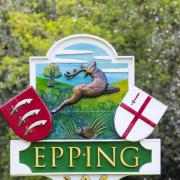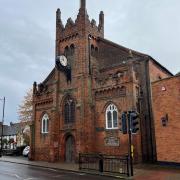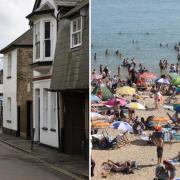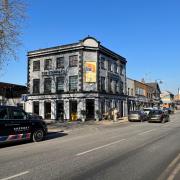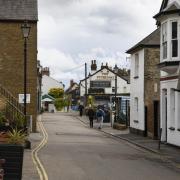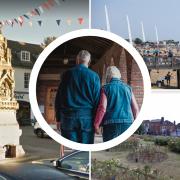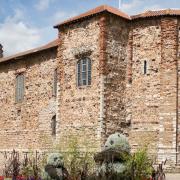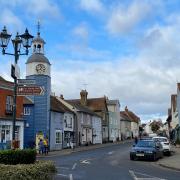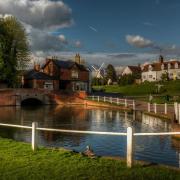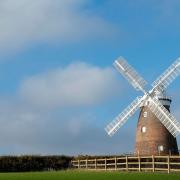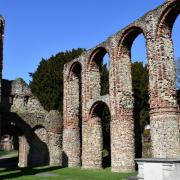Home of the famous sitcom Birds of a Feather and long associated as a hang out of the rich and famous, Elaine Sivyer discovers why Chigwell causes such a stir
CHIGWELL is not known for keeping a low profile and has attracted its share of attention over the centuries. Charles Dickens was so enamoured with the village that he once wrote to a friend, 'Chigwell, my dear fellow, is the greatest place in the world'. It is even suggested that the Maypole Inn, featured in his novel Barnaby Rudge: A Tale of the Riots of 'Eighty, was based on the King's Head Inn in Chigwell.The King's Head could well be straight out of a Dickensian novel. More than 500 years old, this startlingly vast building boasts three storeys, with attics, cellars and beautiful exposed timber framing. It is well worth the trip up the hill to see one of the finest and most dramatic pubs in Essex. Several other notable characters from history seem to have agreed, and the King's Head has counted Winston Churchill among its patrons on visits to his Woodford Green constituency. Somewhat less respectable - but no less famous - Dick Turpin was also said to sup here, his hide being only three miles away in a cottage near High Beech. A mere stone's throw away stands one of the oldest and foremost public schools in the country, founded at the behest of Samuel Harsnett, Archbishop of York, in 1629. Among its many famous past pupils is William Penn, who went on to found Pennsylvania. The original 17th century schoolroom where Penn was taught still exists, and today is the school library.While Chigwell enjoys such long-standing institutions, much has changed since its traditional days as a rural farming community. Chigwell is still celebrated as a lingering bastion of the countryside, and local people take pride in the fact that theirs is the first Essex village encountered when travelling from London. True to form, pick your spot and swaths of greenery roll out as far as the eye can see, while the atmosphere has a tranquility offering relief from the hustle and bustle of the metropolis.Yet Chigwell has welcomed the comforts of modern living with open arms and is far removed from a rural retreat suspended in time. One look into the King William IV pub on the High Road shows that Chigwell can leap from the low-slung timbers of ye olde world to sleek, trendy interiors in a single bound. Now largely suburban, Chigwell caters well for commuters with a tube station transporting its passengers straight into the heart of London. It has long been a desirable place to live, with residents appreciating a taste of village life alongside access to all the amenities of the City. The area attracts affluence and has a reputation for a high class of property. Large modern houses, many built in striking and individual styles, line the roads and make for impressive viewing. Particularly spectacular are those congregated around the 18-hole golf course situated on the border of Epping Forest.Indeed, Chigwell has become nationally famous for its supposed lifestyle - but rather through fiction than fact. This reputation was largely established by the popular British sitcom Birds of a Feather, based in the village. The colourful antics of its residents Sharon, Tracey and Dorien ensured Chigwell was a household name throughout the 1990s and beyond. Chigwell was further immortalised following the TV series Essex Wives and has since been referred to, along with Loughton and Buckhurst Hill, as part of the Essex 'golden triangle'. While artistic license has played a mischievous hand in such representations, Chigwell does have its fair share of high profile and wealthy residents. The area is particularly known for sporting personalities, entertainers and entrepreneurs, who may be attracted by the substantial properties standing in their own grounds. Such luminaries have included tough-talking host of The Apprentice Sir Alan Sugar, and footballing greats Bobby Moore and Sir Geoff Hurst.One of the most legendary properties in Chigwell was Belmont Hall and its accompanying Gate Lodge. Built in 1810 and covering some 47 acres, Belmont Hall was once home to the Earl of Stradbroke. Sadly, however, Belmont Hall was ravaged by fire in 1973, sparing only what was once the carriage and stable block. Today, what little can be seen of Belmont Hall stands about 250 yards from the present Chigwell Hall. From here, traces of both original driveways can still be viewed leading from the High Road towards what were two elegant estates. Belmont Lodge remains at the front entrance - a reminder of Belmont's past splendour. Chigwell has clearly seen plenty of the limelight over the years. However, those who know the village best are proud of its community spirit and unique identity. With many assets for residents and visitors to enjoy, there is something for everyone from all walks of life.



